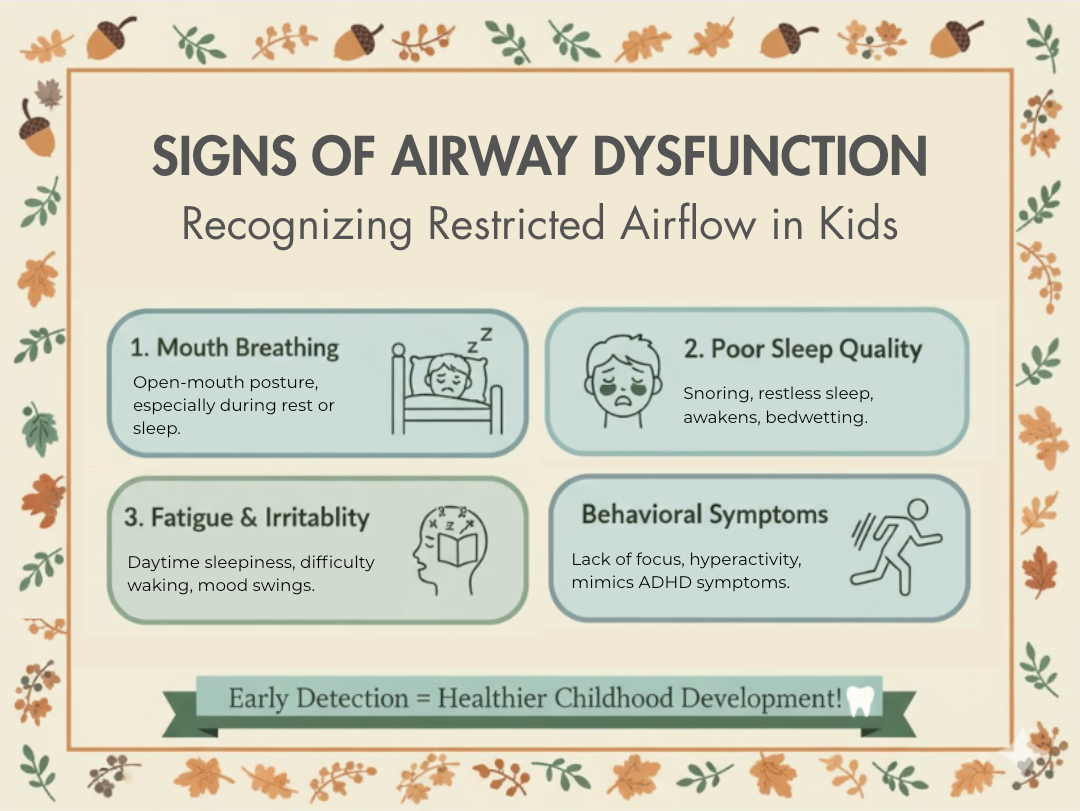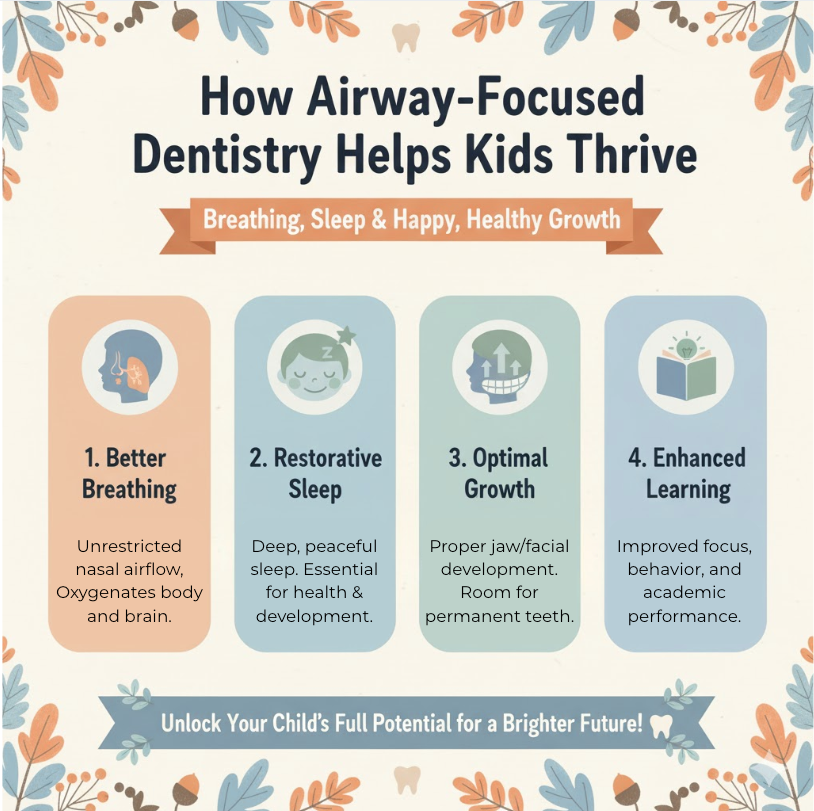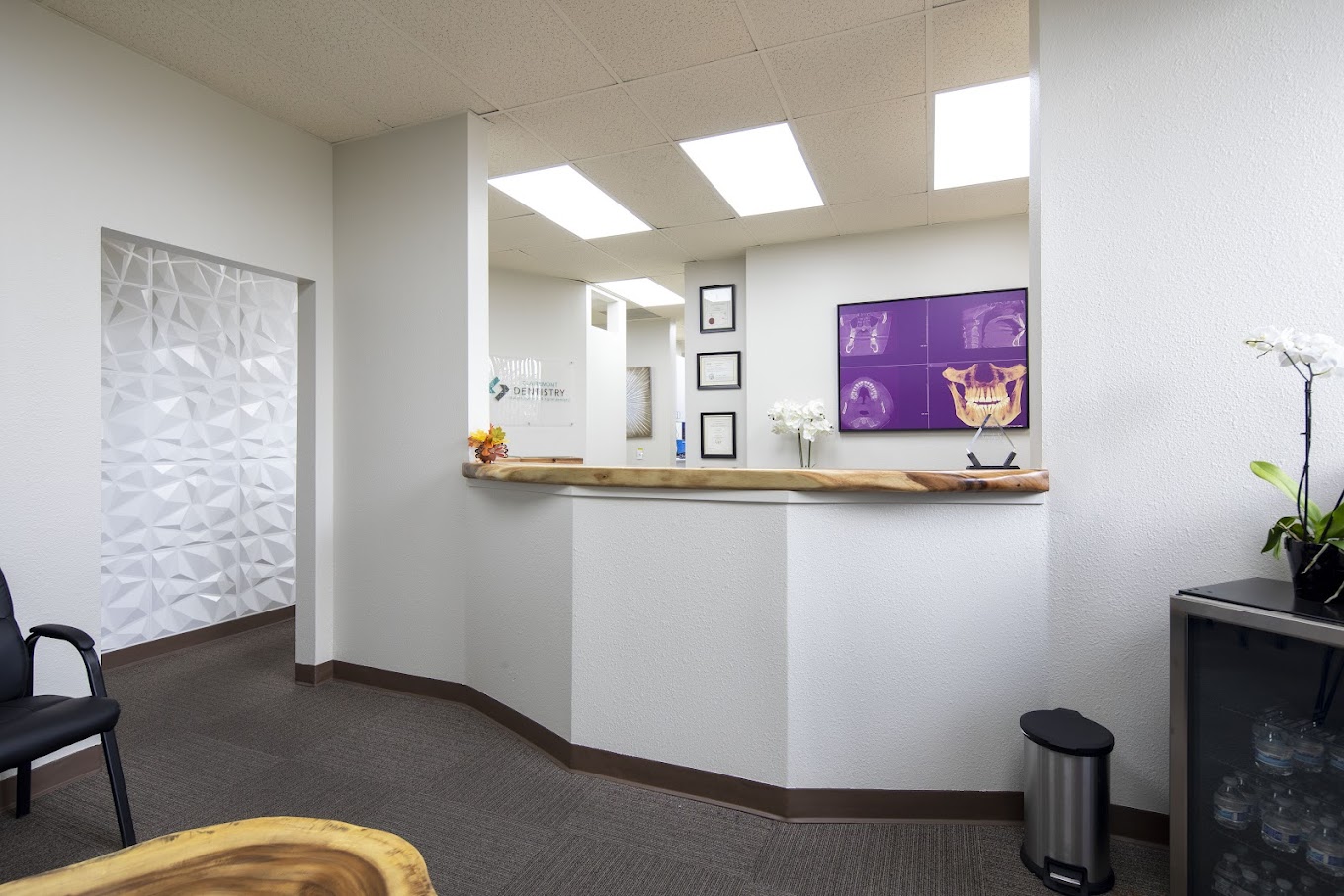
Expert dental tips, news, and smile advice

Expert dental tips, news, and smile advice
The scent of roasted turkey filled the air, laughter bubbled from the living room, and the low hum of conversation blended with clinking glasses. For most families, Thanksgiving is a celebration of gratitude and togetherness. For Sarah, it was also the day she finally noticed something she’d been missing.

Her eight-year-old son, Ethan, had fallen asleep on the couch after dessert. His cheeks were flushed, his mouth slightly open, his breathing uneven. At first, she thought it was just exhaustion after a long day. But as she watched him, she realized—this wasn’t new. Ethan snored almost every night, tossed and turned, and sometimes woke up cranky and tired even after what should’ve been a full night’s sleep.
“I just thought he was a restless sleeper,” Sarah said later. “But that night, I couldn’t unsee it. He looked like he was struggling for air.”
That moment would lead her, a few weeks later, to Elegant Family & Pediatric Dentistry—and to a conversation that changed how she understood her son’s health forever.
When Sarah shared her concerns with Dr. Javidi, he listened carefully before gently asking a few questions most parents don’t hear in a dental office:
“Does he breathe through his mouth during the day?”
“Does he grind his teeth at night?”
“Has he had frequent ear infections or trouble focusing in school?”
Sarah was surprised—these were all things she had noticed but never connected.
Dr. Javidi explained that these could be signs of airway dysfunction—a condition where the structure of the mouth, jaws, or nasal passages restricts proper airflow during sleep. This can lead to mouth breathing, poor sleep quality, fatigue, and even behavioral symptoms that mimic ADHD.

The connection between the airway and oral development isn’t widely known outside pediatric dentistry. Yet, it’s foundational. When children don’t breathe properly through their noses, it affects the growth of their jaws, the position of their teeth, and even the way their faces develop.
“It’s not just about teeth,” Dr. Javidi said. “It’s about the health of the whole child.”
Holidays like Thanksgiving are centered around food, family, and conversation. But they also highlight how interconnected breathing and oral health really are.
When kids breathe through their mouths, they often have trouble chewing efficiently, limited tongue movement, and dry mouths that lead to more cavities. Nasal breathing, by contrast, promotes better oxygen flow, facial growth, and a stronger immune system.
Dr. Parsafar often tells parents, “The way your child breathes when they sleep is just as important as how they eat.”
During Thanksgiving dinner, Sarah remembered how Ethan often chewed with his mouth open and occasionally gagged on tougher foods. She now understood that what seemed like picky eating could actually be tied to the same airway issues causing his poor sleep.
That realization turned into motivation—and relief.
At Elegant Family & Pediatric Dentistry, airway-focused dentistry isn’t a separate specialty—it’s woven into every exam and conversation. The doctors don’t just look for cavities or misaligned teeth; they look for signs of how a child breathes, sleeps, and grows.
Here’s how it typically works:
Dr. Javidi likes to compare airway dentistry to “gardening”: “If a plant doesn’t get enough air or light, it won’t grow strong. Kids are the same way—when they breathe well, everything flourishes.”

When Sarah brought Ethan in for a full evaluation, imaging revealed a narrow upper jaw and enlarged tonsils that limited nasal airflow. The treatment plan included gentle orthodontic expansion to widen his airway and coordination with a pediatric ENT for further assessment.
It wasn’t an overnight fix, but within months, Ethan’s sleep improved dramatically. His teachers even noted better focus in class.
“The difference was like night and day,” Sarah said. “He stopped snoring, woke up happy, and his energy was back. I never realized how much poor breathing was affecting him.”
Her gratitude that Thanksgiving was deeper than ever. “It sounds dramatic, but it changed our family. We all started sleeping better because I wasn’t worried every night.”

Airway issues don’t only affect kids. Adults can struggle, too—especially parents who snore or wake up tired without realizing they’re not getting restorative sleep.
Dr. Parsafar explains that adults with airway dysfunction often show signs like:
At Elegant Family & Pediatric Dentistry, both pediatric and adult care consider the airway as part of total health. It’s not uncommon for a parent to bring in a child for an evaluation—and end up discovering their own airway challenges in the process.
“Good breathing runs in families,” Dr. Javidi said. “When parents model healthy habits, children follow. And when we help one person breathe better, it often improves life for the whole household.”
If your child snores, struggles to sleep, or often breathes through their mouth, an airway evaluation could be life-changing. Our compassionate team can help identify the cause and create a plan for healthier breathing and growth. Learn more about Airway-Focused Dentistry today.
Discover the best solution for your smile at Elegant Family & Pediatric Dentistry. Schedule your appointment now and let our expert team guide you to a confident, healthy smile.

By the time the next Thanksgiving rolled around, Sarah had a new tradition. Before carving the turkey, she asked each family member to share one thing they were grateful for.
When it was Ethan’s turn, he said with a grin, “I’m thankful I don’t snore anymore.” The room erupted in laughter—but for Sarah, that simple statement carried a world of meaning.
Airway-focused dentistry had given her son more than better sleep; it had given him comfort, confidence, and energy.
And that, she thought, is something truly worth celebrating.
One of the most important aspects of airway dentistry is timing. Early intervention—especially between ages 5 and 10—can prevent more serious problems later.
Proper airway development supports:
Dr. Parsafar often reminds parents: “When we treat the airway, we’re not just helping kids sleep better—we’re helping them reach their full potential.”
That philosophy is what makes airway-focused care such a powerful, preventive approach. It’s dentistry that honors the connection between physical health, emotional well-being, and family life.
As Thanksgiving approaches, it’s natural to focus on gratitude—the warmth of family, the comfort of good food, and the joy of shared traditions. But this season, consider adding something new to that list: gratitude for healthy breathing and restful sleep.
Because when your child breathes freely, sleeps deeply, and wakes up ready to take on the world, it’s more than a dental success—it’s a family one.
Schedule an airway evaluation today and give your family the gift of healthier smiles—and better nights.
1. What exactly is airway-focused dentistry?
It’s a holistic approach to dental care that looks at how the mouth, jaw, and airway work together. The goal is to identify breathing or sleep issues early and support healthy development.
2. What signs should I look for in my child?
Common indicators include mouth breathing, snoring, restless sleep, grinding teeth, or chronic tiredness. Some children also struggle with focus or hyperactivity due to poor sleep quality.
3. Can airway dentistry help adults too?
Yes. Adults with sleep apnea, chronic fatigue, or jaw tension often benefit from airway assessments and treatments like oral appliances or orthodontic adjustments.
4. How soon will I see results after treatment?
Some patients notice improvements in sleep and energy within weeks. Long-term growth and breathing benefits continue as the airway expands and habits improve.
5. Does insurance cover airway-focused treatment?
Coverage varies depending on the specific procedures and insurance provider. Our team helps families maximize benefits and offers flexible payment options.